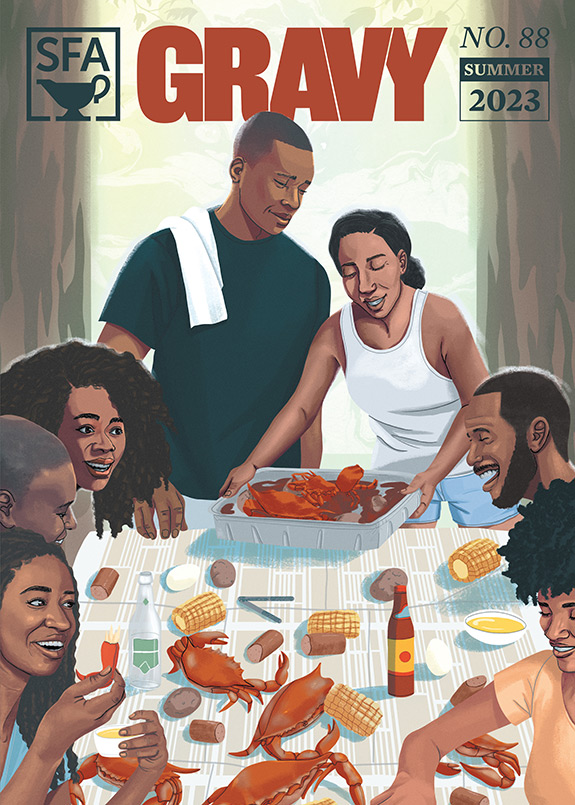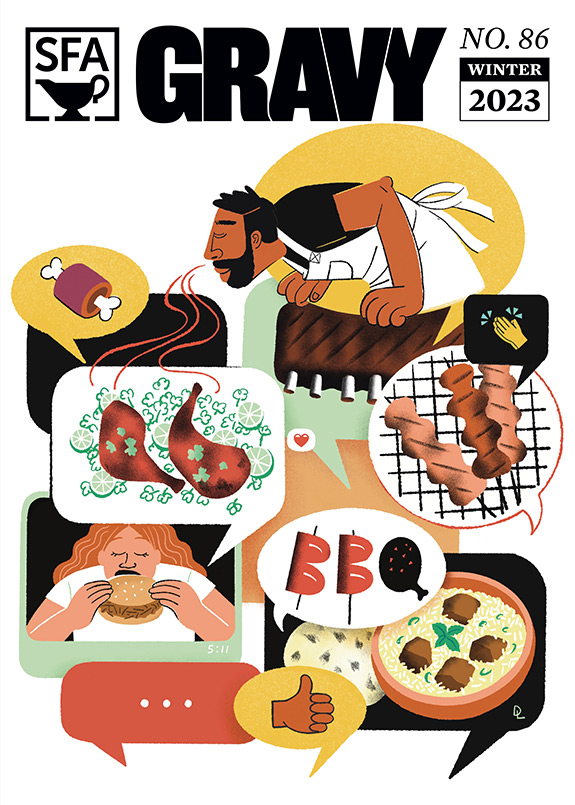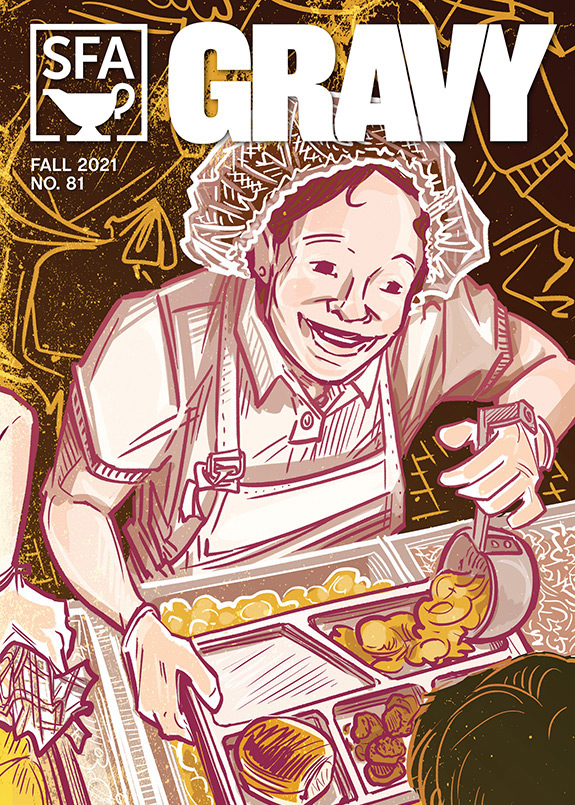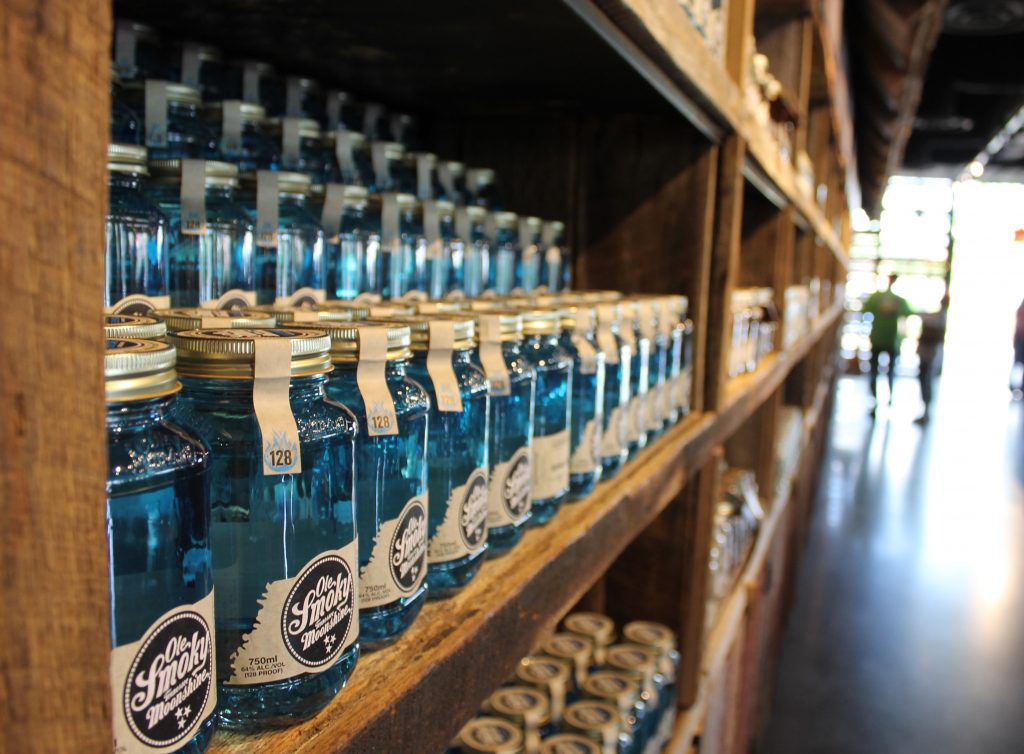
Does the Moon Shine on Legal Moonshine?
by Graham Hoppe
Moonshine is supposed to be trouble. After all, it is probably the most taboo drink in American culture. By definition, it is illegal, made by criminals and drunk by degenerates. Its illicit manufacture (often done in the woods of some dark hollow) is dangerous and occasionally deadly.
In theory moonshine can be almost any kind of homemade hard alcohol. It can be produced anywhere, but it has become indelibly linked to specific white corn liquor made in the South, particularly the mountain South. Moonshine jugs emblazoned XXX and mason jars of white lighting signify a certain place and time—albeit imaginary—in the American psyche. Yet moonshine is not a solely Southern practice: You can find it anywhere people have products to distill and thirsts to quench. Historically, moonshiners have not always been old white guys with long beards either, though these tend to get the most attention.
So what are we to make of the relatively new phenomenon that is legal moonshine? How can such a thing even exist? If the illicit nature of its production is what defines moonshine, then what does a legal version look like? Is it a commemoration, a replica, a souvenir…or a bit of flim-flam meant for tourists?
Plenty of new ‘moonshine’ distilleries are popping up all over the South, but it is hard to imagine a higher concentration than in Sevier County, Tennessee. The county is best known for the Smoky Mountain National Park, as Dolly Parton’s birthplace and the home of her themepark, Dollywood.
Pigeon Forge and Gatlinburg are a bona fide tourist mecca in the county. What began as a series of lodges and restaurants serving visitors to the National Park has developed into an over-the-top series of attractions, each one bigger than the next. If you drive down the main thoroughfare, called simply “The Parkway,” you’ll see countless miniature golf courses, go-kart tracks, dinner theatres, and even a replica of the Titanic. Recently, a new addition has embedded itself into this cavalcade of neon kitsch—moonshine has become as much a tourist draw as the Ferris wheels and wax museums.
In 2009, distilling became a widespread business in the state of Tennessee. The State General Assembly passed a law permitting commercial distilling in 41 counties. Prior to that there were only three counties where alcohol could legally be distilled: Moore (which is also a dry county), Coffee, and Lincoln, all clustered in the southeastern part of the state and home, respectively, to Jack Daniel’s, George Dickel, and Prichard’s Distillery.
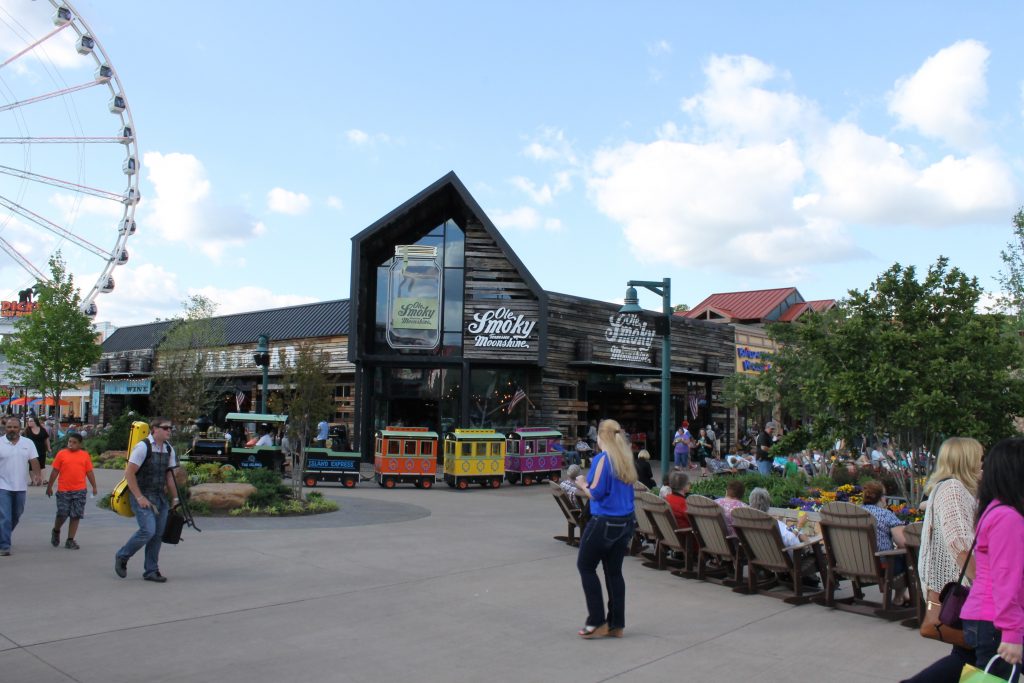
In Sevier County, the first adapter to more permissive environment was Ole Smoky Moonshine, which opened in 2010 and remains the biggest distiller, with two outlets in Gatlinburg and another in Pigeon Forge. Sugarlands Distilling and Doc Collier’s in Gatlinburg, Tennessee, Legend and Jake’s Creek in Sevierville, Old Forge Distillery in Pigeon Forge, and Thunder Road in nearby Kodak quickly followed. They all seem to offer variations on a theme, with tasting rooms that range in size from simply large to absolutely enormous. The tasting rooms at Ole Smoky are staged as the actual distillery, though the little distilling done there is most likely just for the benefit of the thousands of tourists who pass through. Lots of raw wood paneling, hay bales, and antique farm equipment produce a generic folksy feel. Fitting for a vacation destination, t-shirts seem as popular a purchase as the liquor.
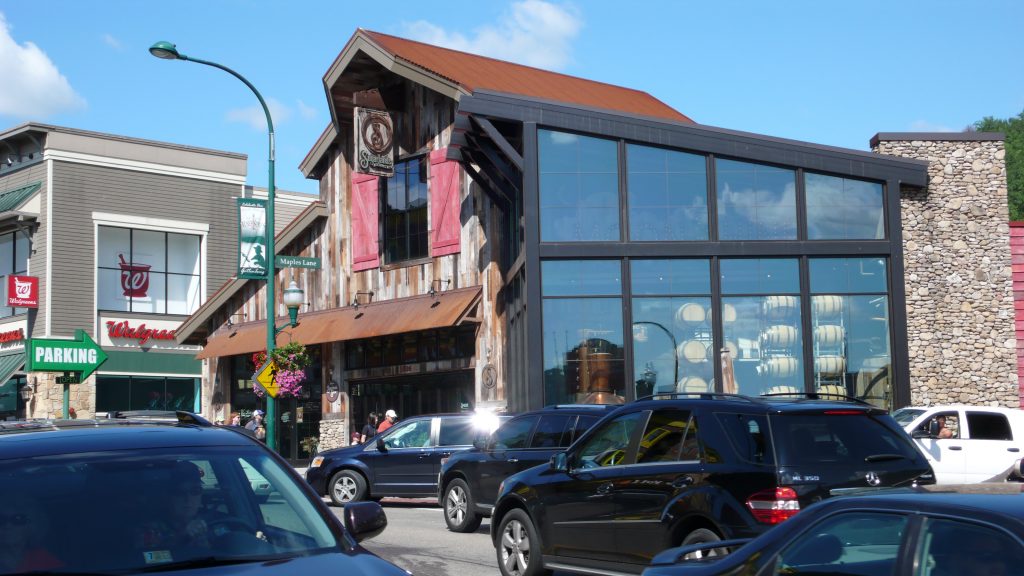
Sugarlands Distilling Company, whose storefront distillery was made from wood salvaged from local barns and farmhouses, offers meet and greets with celebrity ‘shiners who have appeared on Discovery Channel’s Reality show, “Moonshiners.” The ‘legends’ will sign jars of their signature spirits, like Mark Rogers’ American Peach or Jim Tom Hedrick’s Unaged Rye. Cardboard cutouts of the moonshiners greet you at the door if the real person isn’t around. There is a thin veneer here of rustic life, but it’s all incredibly slick and polished. It’s the same kind of feeling you get when listening to commercial country radio (Dierks Bentley is an endorser of Ole Smoky).
Since Ole Smoky sold their first legal jar of liquor in Gatlinburg in 2010, they have grown exponentially. After just six years, their product is available in all 50 states and 30 countries. The tasting room draws more visitors than Jack Daniel’s in Lynchburg. In true Pigeon Forge fashion, where anything worth doing is worth overdoing, a half dozen more distilleries hope to open in the near future.
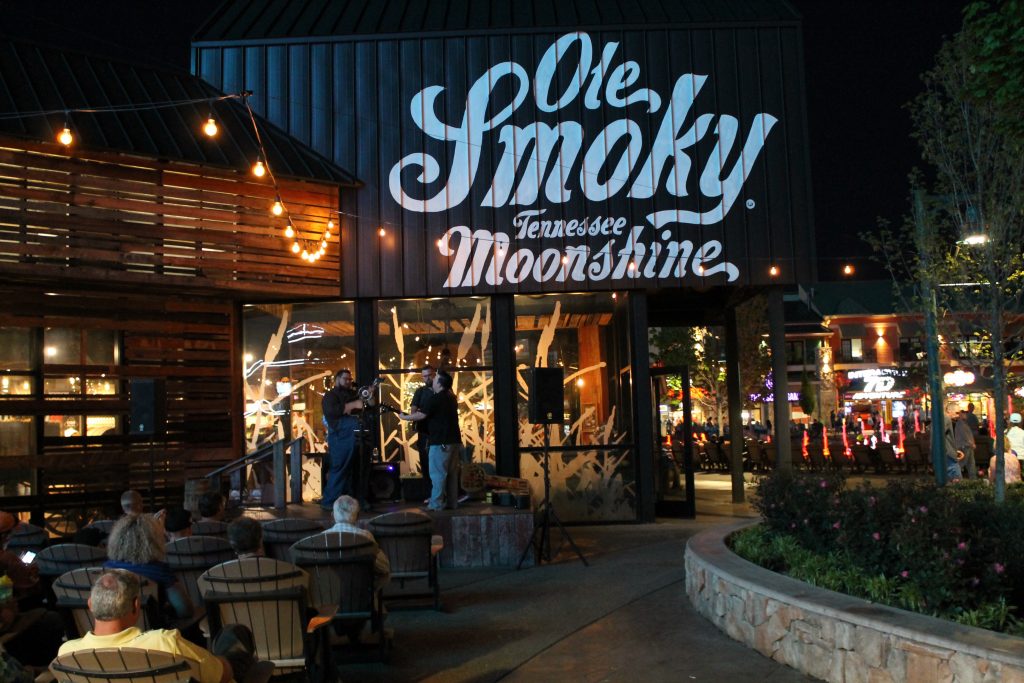
As for that liquor and my original question of what the heck it is? I’m sorry to report that I’m still not entirely sure. The actual content of the mason jars being sold is almost as varied as real moonshine. Some of the distilleries are selling white corn whiskey. A few feature sugar-based spirits, both of which might be considered “authentic” for the region. The most common, however, is what is technically called neutral grain spirits, also known as pure ethanol or, more commonly, vodka. The ethanol products are colored and sweetened to replicate apple pie, moonshine cherries, and even more outrageous flavors like butterscotch, sweet tea, pina colada, blackberry, or lemon drop. Ole Smoky even offers a flavor called “Harley Davidson Roadhouse Custom Moonshine.” The quality, like that of authentic moonshine, also varies greatly. The products made from corn whiskey and/or sugar are generally better than the ethanol stuff, which tastes like whatever flavoring agent they put in there (basically like sugary cough syrup). But most of the customers are more concerned with having fun than what the stuff in the jar actually tastes like.
The distilleries in East Tennessee aren’t selling authenticity—they’re selling folksy fantasy. It’s a bit of fun for the tourists, but it’s also big business. Early concerns about alcohol damaging Pigeon Forge and Gatlinburg’s family-friendly reputation have been allayed by the revenue raised in the form in local, state and federal taxes—something that never came with the genuine article. It might not be the real thing, but don’t tell that to the tourists lining up for a mason jar of Smoky Mountain novelty.
Graham Hoppe lives and works in Raleigh, NC. He writes about culture and history. He wrote his master’s thesis about Dollywood and is currently expanding it into a book. You can find more of his work at grahamhoppe.com.
All Photos: Graham Hoppe





